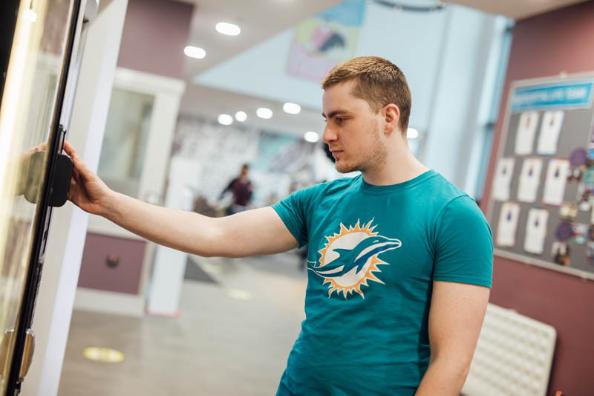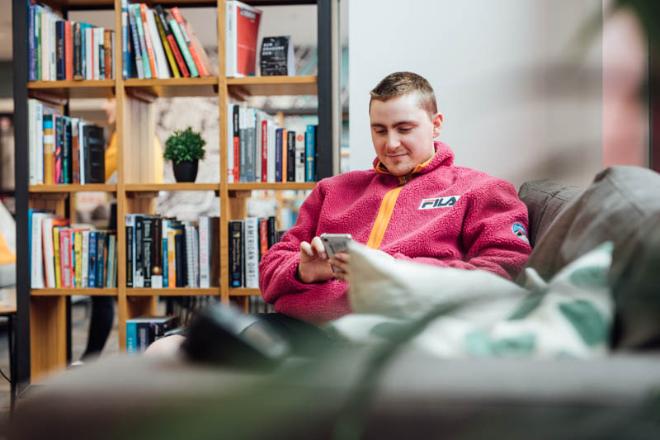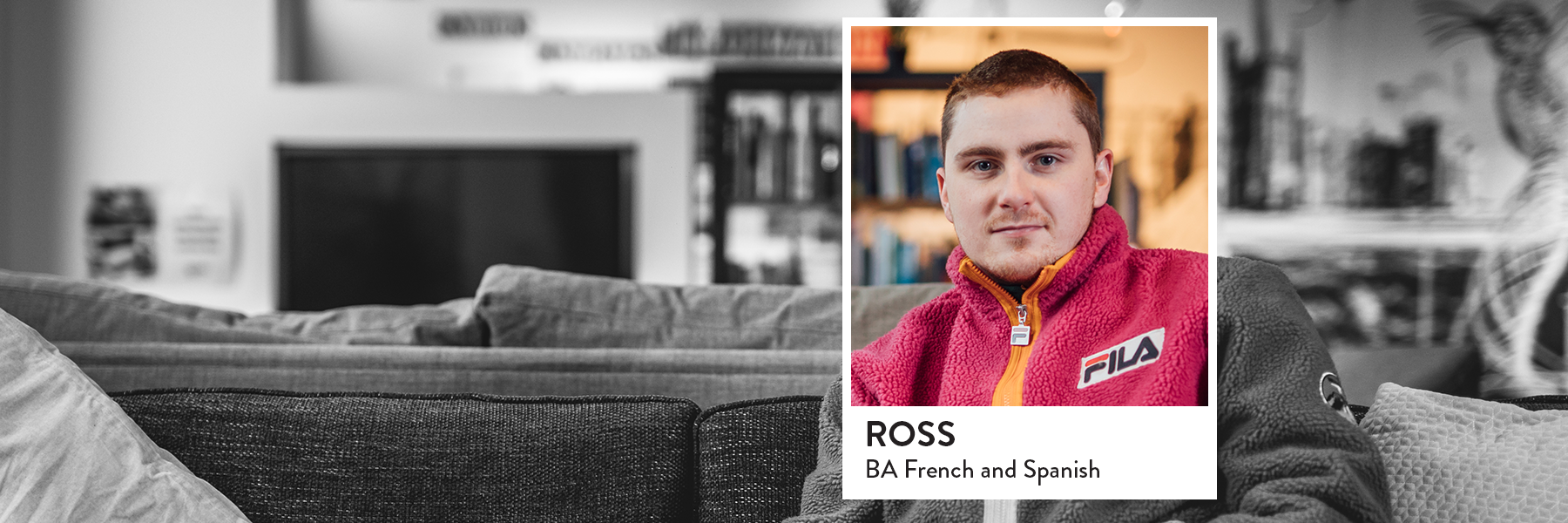Student Stories
"Mental health conversations are improving, but it’s still a major taboo, especially for men. "
I continued to feel like this for about 2 or 3 months of first year before seeking help.
When I started at Queens in 2017, I had limited previous experience and knowledge of mental health issues. In fact, despite the usual nerves, I was actually looking forward to experiencing uni as I would have more freedom. However, uni has not been for me. From day one of first year I have attended classes, essentially fighting off the symptoms of anxiety and panic.
As far back as I can remember, I have always been obsessed and worried about my physical health. So, to go to uni feeling dizzy, tired, unable to breathe and having weak limbs and headaches provided a whole new level of panic for me. I continued to feel like this for about 2 or 3 months of first year before seeking help. I finally decided to go to the doctor where I presumed I would be diagnosed with some sort of heart or blood condition (typical hypochondriac).
To my surprise, after assessment, I was told, “it sounds like you have generalised anxiety disorder”.
Never did I expect it to be so physical
To me the clue was in the title: “MENTAL” health. Never did I expect it to be so physical. I think this is what scared me the most; I was essentially told I have a mental condition, that was manifesting itself physically, with no permanent cure. The symptoms could be quite debilitating at times and uni has generally been a very tough experience for me.

At the start, people would say things like, “just try and think positively” or “have you tried ignoring the symptoms?” This was the most irritating thing to hear and it was really frustrating being unable to verbalise what I was feeling. This inability to express myself fully led to feelings of being completely alone and “no one understands this”. Understanding the reasons for my symptoms made it easier to cope with the condition. I would argue that therapy and the right research on mental health provides you with the foundations to understand why you feel the way you do and in fact the more you express yourself, the easier it gets.
To me it was a major fear that my condition was blatantly obvious and noticeable
My symptoms ranged from tension headaches and a nervous stomach to complete feelings of disassociation where my thoughts didn’t feel connected to actions. An hour in class for me often felt like an eternity and on some occasions I would be keeping a tally on my page of minutes passed to increase my confidence that I could make it to the end of class without passing out in front of everyone. This therefore became a very scary time for me, mixed with the usual pressures of assignments and “fitting in”.
Perhaps the people I shared a classroom with were unaware of my anxiety and panic, but to me it was a major fear that my condition was blatantly obvious and noticeable. Given this fear, I believe I sometimes tried to use humour as a way of lightening the mood of the classroom setting, perhaps in an attempt to create an atmosphere where I would be less tense. In reality it didn’t always help, and I probably just came across as irritating to those around me who were trying to learn.
I had a great fear of being seen as “attention-seeking” given my behaviour in class and the fact I would speak openly about my mental health to anyone and everyone. However, the reason I spoke so much and continue to do so to this day, is in the hope that I can help even just one person to feel less alone. To remove any shame someone may be feeling and to give people the confidence to share their problems too.

Despite all these fears and unimaginable symptoms, I was able to get through each day with the amazing support of my family and friends and of course through different therapies including CBT. If I’m being honest, without them there is a high chance I would be on a very different path right now and I believe this is why it is so important to seek help. Routine is something that has really helped me too; be it as simple as getting to sleep on time or having three proper meals a day. What’s more, it can also help to go back to basics and ask yourself, “what makes me happy?” For me this was exercise, spending time with loved ones and listening to music. It seems impossible at the start but coming from someone who was getting to sleep between 5am and 9am and waking up at 3pm to 6pm, routine and structure really helps.
Mental health conversations are improving, but it’s still a major taboo, especially for men. Personally, suffering from anxiety and panic, being overly sensitive and highly emotional has made me feel less of a man. To this day, I am still insecure about my sensitivity as, for me, a man should be a “protector” and someone who is fearless and strong, but yet I don’t feel I fit that description. It is feelings like this that are leading to the demise of our society.
Things do get better
On a more positive note, things do get better. Since the start of first year, I have seriously considered dropping out of uni every year, especially at the thought of having to spend a year abroad in a different country. I didn’t think I could do it, and I am now sitting halfway through second semester of my final year, more content than I have been since starting Queens. If someone had told me I’d be in final year, having successfully completed and passed my year abroad, I’d have laughed and said something like “yea ok lol”. I guess the message is to have faith and believe in yourself because you’d be surprised with what you can achieve despite your circumstances.

Get Support
Mental Health issues can affect anyone at any time. But confidential, professional help is available through the University.
To find out more, click the button below:
#QUBeWell

To me it was a major fear that my condition was blatantly obvious and noticeable
